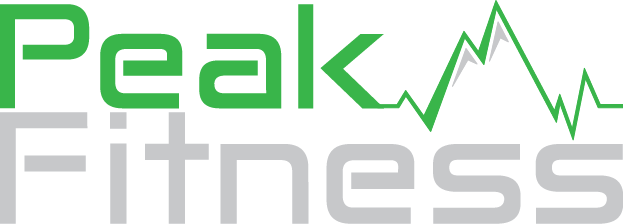A Simple Approach to Eating for Fitness
When it comes to fitness, what you put on your plate is just as important as what you do in the gym. The right nutrition can fuel your workouts, speed up recovery, and help you achieve your health goals faster. Yet, many people find nutrition overwhelming—between fad diets, conflicting advice, and busy schedules, it’s easy to feel stuck.
But here’s the good news: eating for fitness doesn’t have to be complicated. With a simple approach rooted in balance and sustainability, you can enjoy delicious meals that support your body and your goals. In this blog, we’ll break down the essentials of fitness-focused nutrition, share practical tips, and show you how to fuel your journey with confidence.
The Importance of Balanced Nutrition
Food is more than fuel—it’s the building block of your performance, recovery, and overall health. A well-balanced diet provides the energy and nutrients your body needs to thrive.
Key Components of a Balanced Diet:
Carbohydrates: Your body’s primary energy source, crucial for workouts and recovery.
Proteins: Essential for muscle repair and growth.
Fats: Support brain function and hormone regulation.
Vitamins and Minerals: Boost immunity and support bodily functions.
Pro Tip: For personalized guidance, check out our Premium Nutrition Program, led by expert dietitians.
Pre-Workout Nutrition: Fueling for Performance
Eating the right foods before a workout ensures you have the energy and endurance to perform at your best. Pre-workout nutrition is about finding the right balance of macronutrients to optimize performance and avoid discomfort during exercise.
Why Pre-Workout Nutrition Matters:
Energy Boost: Carbohydrates provide quick energy to fuel your muscles.
Muscle Preservation: A small amount of protein before exercise can help reduce muscle breakdown.
Improved Performance: Proper pre-workout meals enhance stamina and focus.
Quick Pre-Workout Snacks:
A banana with peanut butter.
Greek yogurt with honey and granola.
A slice of whole-grain toast with avocado.
Timing Tips:
Eat 30-60 minutes before a workout to allow for digestion and absorption.
For early morning workouts, opt for smaller, easily digestible snacks like a banana or a handful of dried fruit.
Pro Tip: Experiment with different pre-workout snacks to find what works best for your body and energy levels.
Post-Workout Nutrition: Optimizing Recovery
What you eat after a workout can significantly impact recovery and muscle repair.
Why Post-Workout Nutrition Matters:
Muscle Repair: Protein helps rebuild and repair muscle fibers broken down during exercise.
Glycogen Replenishment: Carbohydrates restore energy stores depleted during your workout.
Reduced Muscle Soreness: Proper post-workout nutrition can minimize delayed onset muscle soreness (DOMS).
Ideal Post-Workout Foods:
Grilled chicken with rice and steamed vegetables for a balanced protein and carb combination.
A protein shake with almond milk, spinach, and a banana for quick digestion and nutrient absorption.
Greek yogurt with mixed berries and a drizzle of honey for a light yet effective recovery snack.
Timing Tips:
Consume your post-workout meal or snack within 30-60 minutes after finishing exercise to optimize recovery.
For intense or prolonged workouts, prioritize faster-digesting carbs like fruit alongside protein.
Pro Tip: Hydration is just as important post-workout. Pair your meal with water or an electrolyte drink to replenish fluids lost during exercise.
Hydration: The Unsung Hero of Fitness Nutrition
Staying hydrated is just as important as eating well. Dehydration can lead to fatigue, decreased performance, and even injury.
Hydration Tips:
Drink water consistently throughout the day.
Add electrolyte-rich drinks after intense workouts.
Monitor hydration levels by checking the color of your urine (light yellow indicates proper hydration).
Meal Prep: Simplifying Your Routine
Meal prep is a game-changer for staying consistent with your nutrition goals. It saves time, reduces stress, and ensures you always have healthy options readily available.
Why Meal Prep Matters:
Saves Time: Batch cooking eliminates daily meal prep time.
Promotes Healthy Choices: Pre-planned meals reduce the temptation of unhealthy snacks or takeout.
Supports Fitness Goals: Portion-controlled meals help manage calorie intake and nutrient balance.
Steps to Effective Meal Prep:
Plan Your Meals: Decide on your meals for the week based on your fitness goals, focusing on balanced macronutrients.
Example: High-protein lunches or carb-heavy dinners for post-workout recovery.
Batch Cook: Prepare lean proteins (e.g., chicken, tofu), whole grains (e.g., quinoa, brown rice), and fresh vegetables in large quantities.
Roast veggies, grill proteins, and cook grains simultaneously to save time.
Portion and Store: Divide meals into portioned containers for grab-and-go convenience. Use clear labels to make it easier to stay organized.
Mix and Match: Create variety by combining different proteins, carbs, and veggies each day to avoid monotony.
Beginner-Friendly Meal Prep Tips:
Start with prepping just one meal per day (e.g., lunches) if a full week feels overwhelming.
Invest in quality storage containers that are microwave- and freezer-safe.
Incorporate time-saving tools like a slow cooker, rice cooker, or air fryer.
Pro Tip: Double your dinner recipes to create easy next-day lunches. This reduces prep time and ensures minimal food waste.
Simplify your nutrition and fuel your fitness journey with expert support from Peak Fitness Dieppe. Our Premium Nutrition Program offers tailored plans to help you achieve your health and fitness goals.
Ready to transform your nutrition habits? Join our program today and take the first step toward success.



